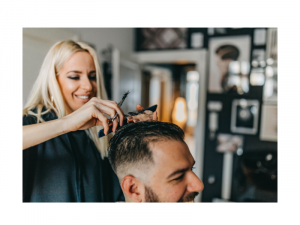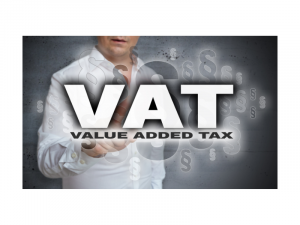Business owners that are VAT registered are required to submit VAT returns regularly to the revenue.
The frequency of submitting the returns could be monthly, quarterly or yearly but when these returns are submitted, they must be accurate and when mistakes are made penalties are charged by the revenue.
A lot of business owners that are VAT registered make hidden mistakes that make them pay the penalty to the revenue.

Penalties for mistakes made on returns
When errors or mistakes are made on Vat returns, the consequence is a penalty issued by the HMRC.
Penalties can be issued for returns that have been prepared carelessly or deliberate inaccurately which could lead to the underpayment of tax, false or inflated statement of loss, or false or inflated statement of repayment.
So that is why knowing what some of these errors or mistakes could be will help to save the taxpayer from paying penalties in future which could be from 0-100% on potential lost revenue to HMRC and also with interest charged on it.
The hidden cause of penalties from improper record keeping.
Keeping proper records is essential for every business, the owners are required under law to keep records of their transactions either digitally or in paper form.
VAT registered owners are however required to keep VAT invoices.
Output Vat is the amount the business owner charges their customers or clients.
They are also required to keep receipts, invoices and documents relating to the input vat they would be claiming on.
The business owner can claim back VAT on items they purchase or pay for whilst running their business
The amount payable or reclaimed is based on the difference between output Vat and input VAT that is why it’s important that this is accurate and records of these transactions are kept properly.
The only bank statement that is accepted as records for Vat is the one that has the Vat separated from the total amount.
The business owner has to note that this record must be kept for six years after the accounting year ends.

The hidden cause of the penalties of not having accurate information on Vat invoices.
Vat registered owners are required to issue vat invoiced to their customers and clients.
When issuing out these invoices, there are certain pieces of information that should be on the invoice.
When these are missing, this could be a hidden cause of penalty from the revenue.
There is certain information that should be on VAT invoices issued by business owners to their customers.
This error is usually by newly Vat registered business owners.
Example of such information includes the following:
- The invoice number.
- The date of supply.
- The date when the VAT invoice was issued.
- The supplier’s name and address and vat registration number
- The name and address to whom the goods are supplied
- The quantity of good
- The rate of vat applied
- The amount charged as Vat including the total amount paid by the customer
- The rate of discounts if any given to customers.

The hidden cause of penalties from claiming Vat on privately used items.
Claiming VAT paid on business transactions paid during the period is one of the perks of being VAT registered.
However, the only input vat is deductible is the one related to business.
Therefore, business owners are not allowed to claim input vat on privately used expenses or goods for personal use.
The reason for this penalty is because it could seem HMRC is paying for the VAT on the item used privately by the business owner.
When this happens, the business owner is supposed to treat the item as self-supplied goods and therefore charge themselves VAT on the items.
This is referred to as deemed supply.
Deemed supply also occurs when the business owners use these items they have already claimed VAT on and use them as a gift to friends and family.
Business owners are allowed to charge VAT on business gifts when the cost of the gift is less than £50 and the gift is made for the furtherance of business.
The hidden cause of penalties from not paying VAT to HMRC when the business stop trading.
Business owners can decide to deregister for VAT, this could be as a result of closing the business or when the turnover goes under the threshold.
Before deregistration, the business owners are required to file the last VAT returns.
The hidden cause of the penalty is if the business owner had claimed VAT on capital items and still had the item at the time of deregistration and has not disclosed this on their final return.
VAT would be charged on the item at the replacement cost of the item.
Replacement value is the amount that would cost to acquire the same asset at the cost that it is currently.
This Vat should be paid on the last returns submitted except if the payment on VAT is less than £1200.
The hidden cause of penalties for giving discounts to customers.
Whilst running a business, discounts are usually given to customers for purpose of increasing sales.
When the customer is given such discount based on satisfaction of certain conditions such as prompt payment, payment method, etc.
The hidden cause of penalty is a result of when business owners apply the discounts on the sales item even before the transaction conditions have been met.
The correct application of this is for the business owner should ideally issue the first invoice with the total amount without the discount applied and when this condition is satisfied by the customer like paying on time, then they can go ahead to deduct the discount from the invoice.
This is to ensure that the business owner charges the right amount of Vat at all times.
When a business owner does not claim bad debt relief.
At times business owners issues invoice for sell of items and then declare this invoice to HMRC and also pay VAT on these items.
So what happens when this invoice does not get paid?
The business deducts the item as a bad debt when preparing their accounts, however, this would not include the Vat paid, so then it seems that this business has paid for vat they cannot claim relief elsewhere.
The VAT-registered business owners could claim a relief referred to as bad debt relief when this occurs.
The business can claim bad debt relief from HMRC on the vat already paid to them when certain conditions are met
The conditions that must be met are as follow:
- They must have supplied this particular item to the client.
- They must have accounted for the VAT and also paid VAT on the items.
- Six months must have elapsed since the date of the supply was made or the invoice was raised.
- The claim must be made within 4 years and 6 months.

The hidden cause of penalties from submitting an incorrect VAT error.
When a business owner submits a Vat return with incorrect information they could have to pay penalties on the incorrect accounts submitted.
When errors are made, the business owner must make this disclosure it cancels or reduces the penalty they could be paying.
To correct this error, they could either make corrections in their subsequent Vat returns if the amount involved is less than 10,000 or mot more than 15 of their turnover.
Any amount over this would have to be corrected by either writing HMRC or most likely filling form 652 or posting this to HMRC.
Conclusion on penalties.
Vat registered business owners should be aware of all these mistakes so as to save them from being investigated by HMRC, paying penalties or losing out on tax reliefs.
If you would like us to support , your business with VAT reports, kindly contact

